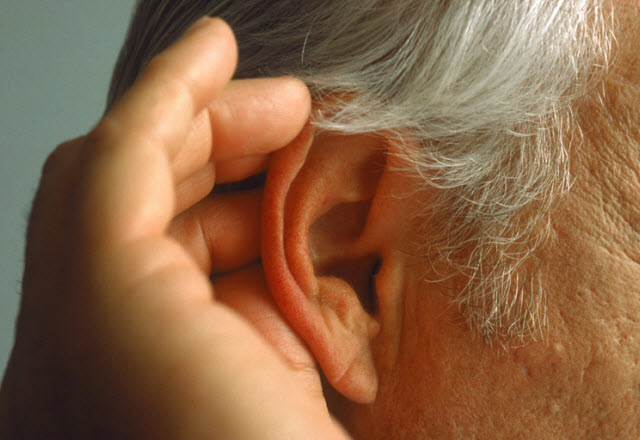“Could you repeat that?” The reason you may have to say something twice when talking to older family members not be because of their hearing. Researchers have determined that something is going on in the brains of typical older adults that causes them to struggle to follow speech amidst background noise, even when their hearing would be considered normal on a clinical assessment.
In an interdisciplinary study, researchers Samira Anderson, Jonathan Z. Simon, and Alessandro Presacco found that adults aged 61-73 with normal hearing scored significantly worse on speech understanding in noisy environments than adults aged 18-30 with normal hearing.
The researchers are all associated with the UMD’s Brain and Behavior Initiative.
The study subjects underwent two different kinds of scans to measure their brains’ electrical activity while they listened to people talk.
The researchers were able to see what the subjects’ brains were up to when asked what someone was saying, both in a quiet environment and amidst a level of noise.
The researchers studied two areas of the brain. They looked at the more ‘ancestral’ midbrain area, which most vertebrate animals — all the way down to fish — have, and which does basic processing of all sounds.
They also looked at the cortex, which is particularly large in humans and part of which specializes in speech processing.
In the younger subject group, the midbrain generated a signal that matched its task in each case — looking like speech in the quiet environment, and speech clearly discernable against a noisy background in the noise environment.
But in the older subject group, the quality of the response to the speech signal was degraded even when in the quiet environment, and the response was even worse in the noisy environment.
“For older listeners, even when there isn’t any noise, the brain is already having trouble processing the speech,” said Simon.
Neural signals recorded from cortex showed that younger adults could process speech well in a relatively short amount of time. But the auditory cortex of older test subjects took longer to represent the same amount of information.
Why is this the case? “Part of the comprehension problems experienced by older adults in both quiet and noise conditions could be linked to age-related imbalance between excitatory and inhibitory neural processes in the brain,” Presacco said.
“This imbalance could impair the brain’s ability to correctly process auditory stimuli and could be the main cause of the abnormally high cortical response observed in our study.”
“Older people need more time to figure out what a speaker is saying,” Simon noted. “They are dedicating more of their resources and exerting more effort than younger adults when they are listening to speech.”
“Often we will hear an older person say, ‘I can hear you, I just can’t understand you,'” said Anderson. “This research gives us new insight into why that is the case.”
This eroding of brain function appears to be typical for older adults and a natural part of the aging process. The researchers are now looking into whether brain training techniques may be able to help older adults improve their speech comprehension.
Simple courtesies can help, too. Since being able to see as well as hear someone speaking helps with speech processing, it’s a good idea to look directly at older adults and make sure you have their attention before talking with them.
“The older brain just drops part of the speech signal, even if the ears captured it all just fine,” said Simon. “When someone can see you speaking, instead of only hearing you, their visual system can sometimes make up for that loss.”
Holding conversations in a quiet environment helps as well.
“The main message is that the older adults in our study have normal hearing as measured on an audiogram, yet they have difficulty understanding speech in noise because the timing aspects of the speech signal are not being accurately encoded,” said Anderson. “Because they have normal hearing, talking louder does not help.
So if someone is having trouble understanding you in a noisy restaurant or in a crowded room, it is most important to speak clearly at a normal or slightly slower than normal rate!”
Source: Science daily
N.H.Kh

